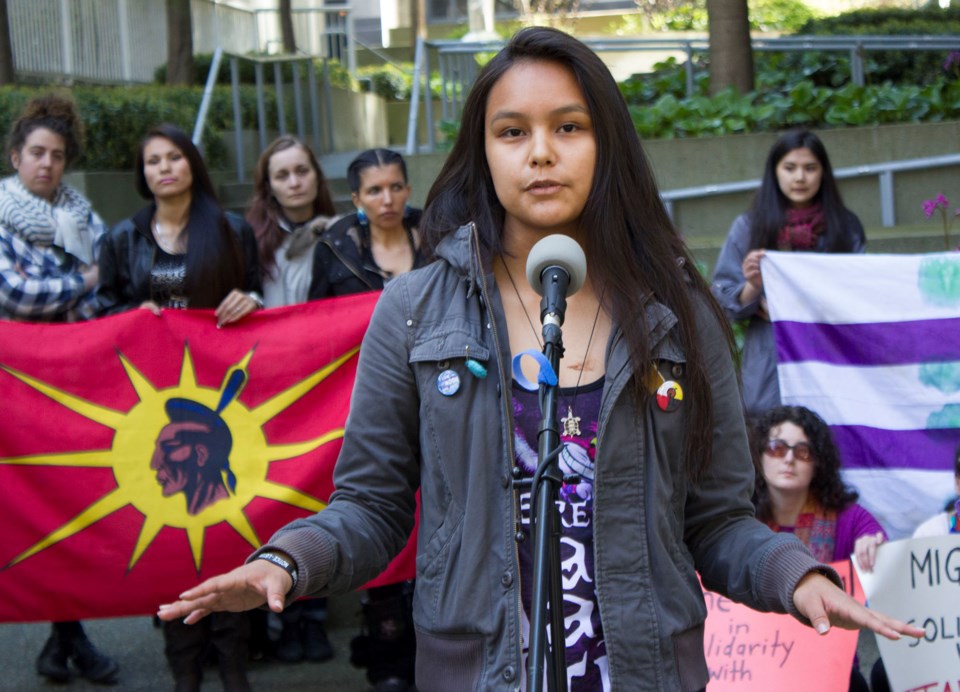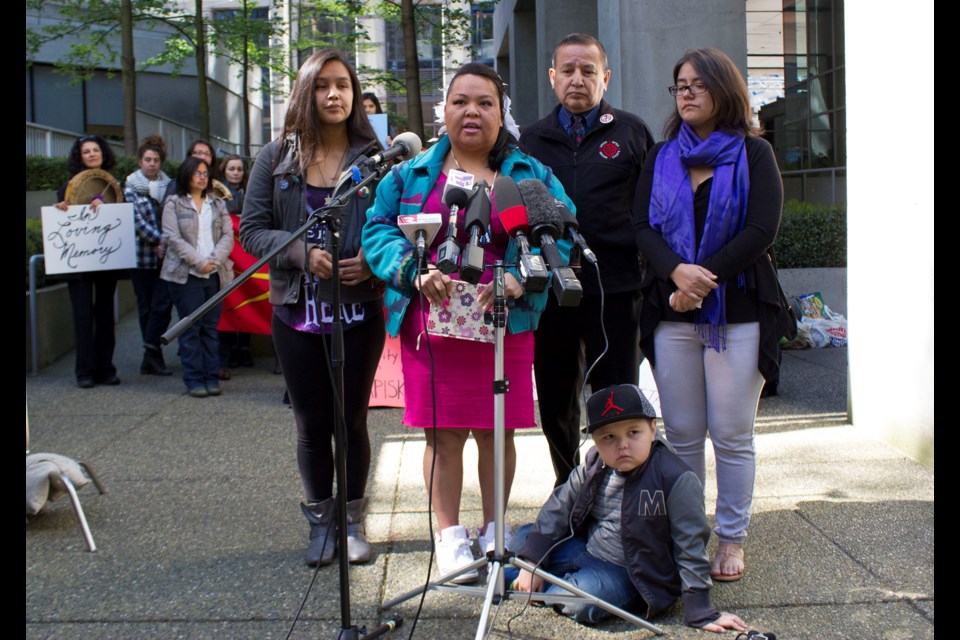Protesters gathered outside the Indigenous and Northern Affairs Canada in downtown Vancouver Monday to announce “a day of victory” as they ended their six-day occupation of INAC office.
The group announced that Carolyn Bennett, Minister of Indigenous and Northern Affairs, and Mélanie Joly, Minister of Canadian Heritage, have agreed to meet with the protesters in Vancouver in late May or early June.
“Securing two ministers to one meeting in six days is a huge accomplishment,” said organizer Jerilyn Webster, who is Nuxalk and Onondaga.
The group, which calls itself the Council of Mothers, has two demands. It wants the federal government to spend as much on Indigenous languages as it does on the French language, which receives $2.4 billion in funding. Indigenous languages receive $5 million.
It also wants the national program Cultural Connections for Aboriginal Youth to be revived. The program, which offered cultural and economic support to off-reserve youth, was shuttered in 2012 by the Harper government. Webster sat on the CCAY council for six years.
“This is just the beginning of the work. It’s not like we’re going for a photo op or for lip service. We’re there for action and we’re demanding action,” said Webster.
WOMEN LEADING THE WAY
From April 18 to 23, Webster, Chrisse Oleman and Crystal Smith occupied the INAC office in Vancouver along with youth Valeen Jules, six children and one father.
“Right now in Canada the most unsafe person is an Indigenous woman,” said Webster during the press conference. “And today we flipped the script.”

Webster said she did not intend for the protest to comprise mainly women. “We did ask men and there wasn’t any available at that time.”
Men later supported the occupation from the outside, she said.
Union of B.C. Indian Chiefs Grand Chief Stewart Phillip, who supported the Council of Mothers’ occupation, sees the female-led protest as an advantage.
“Quite frankly, I think had there been men involved they would have mucked it up,” said Phillip.
Women are better equipped to take decisive action, according to Phillip.
“It’s women, single mothers in particular, that carry the heavy and quite often tragic burden of poverty that afflicts Indigenous peoples.”
HEADING TOWARDS A 'LONG, HOT SUMMER'
Initially, the women protested in solidarity with Attawapiskat in northern Ontario, which is facing a suicide crisis.
After Bennett met with the community, Attawapiskat youth urged protesters in cities across Turtle Island to focus on regional issues.
Webster and Phillip said they expect more direct action in the coming months — even if Bennett and Joly satisfy the Council of Mothers’ demands.
“Indigenous youth are beginning to mobilize and if I was government, I’d be deeply concerned about that,” said Stewart. “What happened here could be the harbinger for a long, hot summer given the multitude of issues that are confronting the Indigenous people of this country.”



